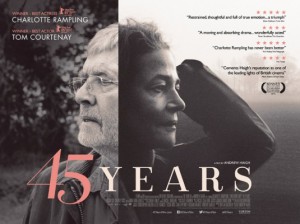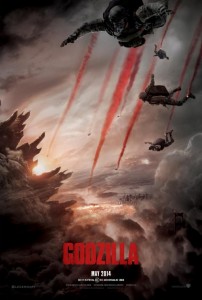Posts Tagged ‘Juliette Binoche’
Cerebral Survivors
Ghost in the Shell
Director: Rupert Sanders
Cast: Scarlett Johansson, Michael Pitt, Pilou Asbaek, Takeshi Kitano, Juliette Binoche, Peter Ferdinado, Daniel Henshall, Yutaka Izumihara, Chin Han
Humanity’s tendency towards self-destruction and rejuvenation is carefully examined in director Rupert Sanders futuristic thriller Ghost in the Shell featuring Scarlett Johansson (Lost in Translation), Michael Pitt and Danish actor Pilou Asbaek.
Drawing influences from Ridley Scott’s ground breaking film Blade Runner, Ghost in the Shell is based on a manga or Japanese comic of the same name by Masamune Shirow .
Johansson plays a cybernetically enhanced soldier with a human brain and a robot body Major who specializes in counter terrorism. Set in an advanced rendition of a nameless Asian city in the future with holographic images projected onto luminous skyscrapers, Major goes into retrieve a cyber geisha who hacks into the augmented brain of a corporate designer who is murdered.
As the backstory of Ghost in the Shell unfolds, Major was designed by Dr Ouerlet played with suitable panache by Oscar winning French actress Juliette Binoche (The English Patient). However when Dr Ouerlet is also targeted by cyber humans Major along with the assistance of Batou played by Danish actor Pilou Asbaek rushes to save her creator.
As Batou and Major trace the hack to a Yakuza nightclub, Batou gets injured in an explosion while Major confronts the source of the hack, the mysterious Kuze awkwardly played by American actor Michael Pitt who first rose to fame by appearing naked alongside Eva Green and Louis Garrel (Saint Laurent) in Bernardo Bertolucci’s ménage-a-trois film The Dreamers set in Paris in 1968.
Major experiences glitches or flashbacks to her former life and embarks on a quest to find out what really happened to her human body before she was cyber enhanced by the mysterious Tanka corporation run by the crazed CEO Cutter played by British character actor Peter Ferdinando (300: Rise of an Empire).
Despite the convoluted plot, is Ghost in the Shell worth watching?
If you are a serious fan of Anime yes. If you enjoyed Blade Runner, this sci-fi film will certainly not live up to expectations and occasionally be lost in translation.
Visually the film is astounding, yet in terms of originality Ghost in the Shell is nothing extraordinary and many of the philosophical reference points will be lost as the narrative descends into another inexplicable action film.
Cinema enthusiasts should note that Masamune Shirow original manga was heavily influenced by the Hungarian philosopher Arthur Koestler non-fiction 1967 publication Ghost in the Machine about humanity’s ability to self-destruct based on the Phenomenological concept of mind body dualism introduced by British behaviourist philosopher Gilbert Ryle in his 1949 book Concept of the Mind.
Phenomenology is the philosophical study of the structures of experiences and consciousness something which director Rupert Sanders attempts to convey in Ghost in the Shell through Johansson’s firm portrayal of Major rediscovering her anatomical past.
Ghost in the Shell gets a rating of 7 out of 10 enhanced by its glossy visual effects although the acting needed serious stimulation and the bizarre characters required an authenticity check.
Sources:
https://en.wikipedia.org/wiki/The_Ghost_in_the_Machine
https://en.wikipedia.org/wiki/Arthur_Koestler#Fiction_.28nove
https://en.wikipedia.org/wiki/Manga = Japanese Manga
https://en.wikipedia.org/wiki/Anime – Anime = Japanese hand drawn or computer animation
https://en.wikipedia.org/wiki/Phenomenology (philosophy) – Phenomenology = philosophical study of structures and experiences
2015 Berlin Film Festival
2015 Berlin International
Film Festival Winners
The 65th annual Berlin International Film Festival was held from 5th to the 15th February, 2015
The Berlin International Film Festival known as the Berlinale takes places annually in February and is regarded as one of the most prestigious film festivals in the world.
The Opening Night film was Nobody Wants the Night directed by Isabel Coixet starring Juliette Binoche, Gabriel Byrne, Rinko Kikuchi and Matt Salinger.
Winners of the five main prizes at the 2015 Berlin Film Festival were as follows: –
Golden Bear (Best Film): Taxi directed by Jafar Panahi
Silver Bear (Best Director): shared between – Radu Jude for Aferim!
&
(No Poster Available for this film)
Best Actor: Tom Courtenay – 45 Years
Best Actress: Charlotte Rampling – 45 Years
Silver Bear for Best Script: Patricio Guzmán for The Pearl Button
Source: http://en.wikipedia.org/wiki/65th_Berlin_International_Film_Festival
Gigantic Nuclear Proportions
Godzilla
Director: Gareth Edwards
Cast: Aaron Taylor-Johnson, Elizabeth Olsen, Bryan Cranston, Sally Hawkins, Ken Watanabe, Juliette Binoche, David Strathairn
At the heart of any disaster film, is the struggle of a nuclear family to survive the impending devastation. The brilliant film The Impossible directed by J. A. Bayona about the 2005 Boxing Day Tsunami which wrecked Thailand and beyond proves that.
In the 2014 remake of the Japanese director Ishiro Honda’s http://en.wikipedia.org/wiki/Ishir%C5%8D_Honda original 1956 classic Godzilla, King of Monsters, director Gareth Edwards retains the Japanese mythology of Godzilla setting the 21st century Godzilla in a range of Asian Pacific rim cities from San Francisco to Honolulu to Tokyo. Assembling an all star and eclectic cast similar to Guillero del Toro’s Pacific Rim, director Edwards adds a global flavour to this ultimate retro Asian inspired disaster movie.
With an international mix of supporting stars like Bryan Cranston (Argo), Sally Hawkins (Blue Jasmine, Great Expectations), little seen Oscar winner Juliette Binoche (The English Patient), Ken Watanabe (The Last Samurai) and David Strathairn (Good Night and Good Luck), Godzilla boasts an impressive cast to support the rising stars Elizabeth Olsen and Aaron Taylor-Johnson (Anna Karenina, Savages) who star as Elle and Ford Brody who have a young son Sam, played by Carson Bolde.
As the looming threat of nuclear transformed monsters emerging from the depths of the Pacific Ocean looms, it is this nuclear family that Godzilla focuses its narrative on, not that there is much deep characterization necessary or acting to make Godzilla credible. Serving as a historic metaphor for the nuclear bombings of Hiroshima and Nagasaki ending World War II and permanently etched in the Japanese psyche, Godzilla become a symbol of all that was wrong with nuclear energy and its transformative effects on the natural world, creating gigantic monsters as a horrific by product of nuclear testing in the South Pacific.
Director Gareth Edwards as a former visual effects artist for a range of scientific TV series (Perfect Disasters, Space Race), naturally in this version of Godzilla, the monsters and special effects take precedence over the acting, leaving the talented cast literally dwarfed by the sheer scale of Godzilla and its two malignant monsters the Moto. Visually this is where Godzilla excels especially in 3D maybe not to the imaginative scale of Guillermo del Toro’s Pacific Rim, but definitely in the set design and the sheer scope of this disaster film, as the action moves swiftly from the Philippines to Japan to the Californian Coastline and beyond. Even sin city, Vegas is not spared by the wrath of these destructive creatures.
Godzilla will surely impress audiences with all the mayhem, dazzling visual effects and sheer destruction on screen, however the second half of the film is literally overshadowed by utter devastation to such an extent that it does not make the action seem plausible. Whole cities from Honolulu to San Francisco and parts of Tokyo are destroyed inconsequentially as these monsters play havoc with nature and humanity.
Unfortunately the action erases any attempts at credible acting but then again this is a fantasy disaster movie of nuclear proportions. Cranston and Binoche are underutilized and Taylor-Johnson and Olsen are left struggling to survive this horrific assault on themselves and their city, whilst protecting their only son. The action sequences are incredible especially the Hawaii and Honoulu devastation which is like a combination of Jurassic Park and The Impossible on acid.
For viewers that enjoy big budget disaster movies like Pacific Rim, then Godzilla is not to be missed. What is noteworthy is the allusion in Godzilla to the many natural disasters that Japan has suffered recently from the Fukushima nuclear leak in 2011 following the devastating earthquake which destroyed Sendai.
Director Gareth Edwards does his best to maintain a balance between the characters survival narrative, and a visually impressive disaster film which pays homage to its unique Japanese heritage. Its Godzilla which ultimately triumphs leaving the cast a little underutilized and at times superfluous to the incredible spectacle of the King of Monsters battling its alien nuclear usurpers against an obliterated urban landscape.
Descent into Random Chaos
Cosmopolis
Director: David Cronenberg
Cast: Robert Pattinson, Juliette Binoche, Matthieu Amalric, Paul Giamatti, Samantha Morton, Sarah Gadon, Jay Baruchel
Published in 2003, American writer Don DeLillo’s philosophic diatribe on the randomness of contemporary American culture showcases a society on the brink of paranoia, valueless violence and dysfunctional oligarchs, Cosmopolis was originally praised by literary critics as a prediction of a truly unpredictable urbanized consumer society which thrives on wealth and more inherently lack of wisdom. Naturally the book is set in Manhattan, New York, the site of the 9/11 terror attacks on the Twin Towers and the heart of Wall Street, where corporate greed has run riot, a metropolitan pantheon of the perverse.
Cosmopolis focus on the young, vain, egotistical and hypochondriac billionaire Eric Packer who trades in all the world’s fluctuating currencies from the comfort of his sleek, multifaceted stretch limousine. A vehicle, where he can have sex with his financial advisor, have his prostate examined while predicting the currencies in Asia, pour a vodka and unemotionally view the thronging masses rhythmically rioting on the Manhattan streets as they protest job losses, raising inflation and an impending economic meltdown. DeLillo’s post 9/11 novel, almost predicted with certainty the 2008 financial crisis of Wall Street rupturing the entire American Capitalist system as the collapse of the subprime mortgage lending schemes which crippled international banks and caused contagious economic havoc.
Enter Canadian director David Cronenberg (The Naked Lunch, A History of Violence), whose claustrophobic film version of Cosmopolis starring Twilight’s Robert Pattinson as the deadpan, psychotic bored billionaire Eric Packer along with a host of briefly seen international stars from Juliette Binoche (The English Patient), Matthieu Amalric (The Diving Bell and the Butterfly) and Samantha Morton (The Libertine) who are all captured in a series of sporadic dialogues with Packer which ultimately serve no purpose whatsoever emphasizing DeLillo’s dissatisfaction with contemporary discourse and the apparent random rhetoric attributed to contemporary language, making for a quirky and unintelligible script, purposefully devoid of significance.
Whilst as a novel, DeLillo crisply conveys the descent into chaos and violence that Packer’s journey across downtown Manhattan will lead to, all in the search of a haircut, the novel’s perilous message is lost on the big screen. Cronenberg’s Cosmospolis does not convey many exterior shots of New York but like the novel confines the action mostly to the limousine and the diner, inherent symbols of American excess and corporate convenience: a dystrophic society ready to consume itself.
Cosmopolis is difficult to watch, almost uncomfortable from the random and bloody violence to the prospect of seeing Pattinson cooped up in a Limo for most of the film, and unlike Mary Hatton’s brilliant film adaptation of Brett Easton Ellis novel, American Psycho, does not make use of the Manhattan skyscraper iconography. Unlike American Psycho, Cosmopolis comes across onscreen as a pretentious film without much substance, but then that is conveyed more accessibly in DeLillo’s slim and scathing prosaic prediction of an American society consumed by greed, vengeance and mistrust.
Best part of Cosmopolis is the final scene between Robert Pattinson and Paul Giamatti (Sideways, The Hangover Part II) who adds an uncharacteristic level of deviousness to an otherwise thinly plotted but ultimately vacuous narrative.
Audiences should not expect stunning visuals or any cathartic release, after all this is pure Art House Cinema Cronenberg returning to eccentric cinematic form and not intent on delivering a more substantial mainstream thriller like his brilliant Russian gangster film Eastern Promises.
2010 Cannes Film Festival
2010 Cannes Film Festival Winners
Winners of the five main prizes at the 2010 Cannes Film Festival were as follows: –
Palm d’Or: Uncle Boonmee Who Can Recall His Past Lives directed by Apichatpong Weerasethakul
Best Director: Mathieu Amalric for On Tour
Best Actor: · Javier Bardem for Biutiful &
Elio Germano for Our Life (La Nostra Vita)
Best Actress: Juliette Binoche for Certified Copy
Best Original Screenplay: Poetry written and directed by Lee Chang-dong
Source: http://en.wikipedia.org/wiki/2010_Cannes_Film_Festival


























